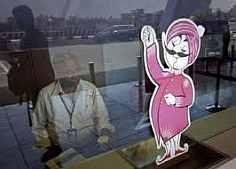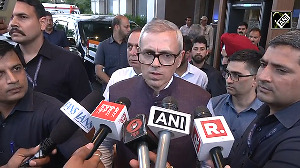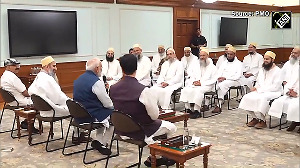Air India's hopes of slashing 5,000 jobs through a voluntary retirement scheme (VRS) may be too ambitious, say experts and union leaders. The airline would need about Rs 700 crore (Rs 7 billion) to put the offer together, and it is yet to secure the finance ministry's approval for this. The airline had earlier said it would offer VRS to all employees, excluding pilots, technical staff, engineers and cabin crew, who were aged more than 40 and had completed 15 years of continuous service in the airline.
The airline had earlier said it would offer VRS to all employees, excluding pilots, technical staff, engineers and cabin crew, who were aged more than 40 and had completed 15 years of continuous service in the airline.
AI has 31,000 employees on its rolls and a wage bill Rs 3,100 crore (Rs 31 billion) a year.
Under the VRS scheme, which the airline says is more attractive than the VRS offer in 2003, AI employees would be offered compensation equivalent to the salary for 35 days for each completed year of service and compensation equivalent to the salary for 25 days for every year of service remaining.
"This compensation this offer provides is one-and-a-half times that offered in the earlier scheme," said a senior airline official.
However, many say the response to this might be lukewarm. Arun Kumar Malhotra, general-secretary of the Air Corporation Employees Union, says, "To make the VRS attractive, AI should offer employment to a ward of employees opting for retirement.
The employment could be on contract and vacancy-based, provided the person meets the eligibility criteria. This would encourage employees to opt for the VRS."
In 2003, AI
An ex-Air India official involved with the previous VRS scheme, said, "The figure of 5,000 is too optimistic. Earlier, too, when VRS was offered in 2003 by the aviation ministry, not more than 500 people had opted for it." Instead, AI could have considered a compulsory retirement scheme for people aged more than 55, he said.
The official also questioned who would run the airline if 5,000 people quit through the VRS. The Cabinet is soon expected to approve hiving off two businessesaircraft repair and ground handlingas separate entities. This spin-off would result in transferring 7,400 employees to aircraft repair and12, 000 employees to ground handling.
Currently, AI has 42,000 employees, including direct and contractual staff, and operates 132 aircraft. This means an employee-to-aircraft ratio of 318. If the VRS is implemented successfully, the ratio would fall by about 12 per cent to 280.
Globally, this ratio ranges between 200 and 220. Other domestic airlines have 100-150 employees per aircraft, while low-cost carriers have less than 100.
The Dharmadhikari report, which sought to identify human-resources-related concerns the airline faced, had initially recommended a VRS for about 7,000 employees through an employee stock option plan. "VRS is a necessary step to rationalise the manpower-to-aircraft ratio, in conformity with industry norms," the report had stated.










 © 2025
© 2025